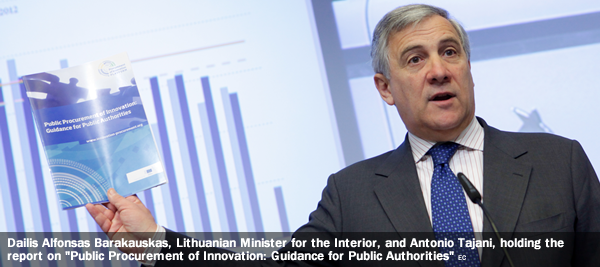Attending, what the Commission termed a ‘business-friendly’ conference on Public Administration, European Commission President Jose Manuel Barroso said: “Given the size of the total [EU] procurement market… each 5% saved could return around €100 billion to the public purse.”
Barroso added: “…just four days ago, the European Council highlighted once again the importance of the digital economy and innovation across all sectors of the economy, including in particular the public sector…”
“I emphasized that investment and innovation in the digital sphere will be key drivers of future growth, and jobs and competitiveness. Completing the digital single market by 2015 and delivering on our innovation agenda are therefore both high priorities to deliver on our Europe 2020 strategy for smart, sustainable and inclusive growth.”
He said: “The public sector accounts for nearly half of Europe’s Gross Domestic Product, public procurement for 20% of Europe’s GDP and public sector for more than 25% of the total employment in the European Union. And we know that in some of our countries this is even more impressive, these figures.”
“This clearly shows how much public sector is part of the solution. It has to be a partner for change. It is about what we can do to stimulate growth. It is also about jobs and well-being.”
Barroso commented: “…tax administration [is] one of the most important areas where we can improve the relation between the public administration and the citizens and business is precisely in the simplification of tax regimes that are extremely complex, sometimes with extremely high costs, this could be avoided with some modernisation.”
“Significant steps have also been taken with our recent communication to make European Union legislation lighter, simpler and less costly, with the Commission’s Regulatory Fitness and Performance Programme, the so-called “REFIT” which I already mentioned because it was a major topic in the European Council last week.”
He concluded: “Nevertheless we believe more has to be done. As I said, quoting Montesquieu, ‘Les lois utiles affaiblissent les lois nécessaires’, it means ‘useless laws weaken the necessary ones’. We need to have less regulation in some areas, where we think that the value added by legislation at European level does not compensate for the bureaucratic procedures and administrative charges or burdens that it originates.
